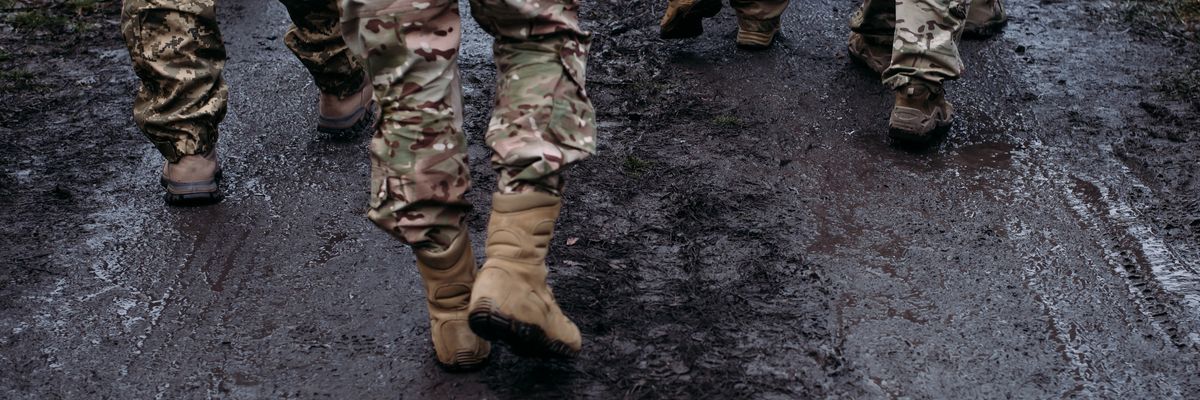After 18 months and billions of dollars spent, there are signs that the American public’s patience is waning with the Biden administration’s Ukraine policy.
A recently published poll by the Eurasia Group Foundation (ESG) found that 58% of Americans think the U.S. should push for a negotiated end to the war in Ukraine, citing the high humanitarian costs. Meanwhile 34% want the defense budget to decrease, 16% would like to see more and half would maintain military spending at current levels.
Such is the change in the public mood that even the mainstream media has picked up on it. Over the weekend, The New York Times published a report which expressed alarm over wavering support for the war, noting:
…even before the war in the Mideast began last week, there was a strong sense in Europe, watching Washington, that the world had reached “peak Ukraine” — that support for Ukraine’s fight against Russia’s invasion would never again be as high as it was a few months ago.
While the seeming shift in public opinion is an important one and should signal to the administration that the time has come to pursue negotiations, it is clear that those whose opinions matter most — in Kiev, Moscow, and Washington — aren't terribly interested in doing so.
In late September, Russian Defense Minister Sergei Shoigu delivered widely reported comments interpreted by many to mean that Russia plans on fighting Ukraine until 2025. Recent reports also show that Russian defense spending is up 21.2% year over year with no end in sight.
Here in Washington, the administration remains firmly on a war footing. In a New Yorker profile of Biden national security adviser Jake Sullivan, a former US ambassador to NATO described Sullivan as “the quartermaster of the war — and everything else.”
Sullivan’s hands-on role apparently extends deep into the minutiae of the war, with the New Yorker reporting that “In his office, there is a chart— updated frequently — showing countries’ current stocks of ammunition that might go to Ukraine.”
Instead, the administration should be working diplomatically to end rather than prolong the agony of Ukraine (and yes, we understand that it is ultimately up to the Ukrainians if they want to fight on or not, but that does not mean we are obliged to surrender our agency in matters of intelligence sharing, arming, funding or even diplomacy.)
Leaving the shift in public opinion aside, the administration would still be wise to reconsider its current course given the mounting economic and political costs of the war which include de- industrialization and the continuing rise of the far-right in Germany. Meantime, the recent election in Slovakia indicates that patience with the war is elsewhere wearing out.
Given the continuing and growing geopolitical risks (not least of which is escalation between nuclear-armed Russia and NATO), President Biden might want to take his cue from the American people, seize the mantle of statesmanship, and begin the long, arduous journey toward peace in Eastern Europe.
- Is weakening support for Ukraine war following a historical pattern? ›
- Polls: Black Americans less inclined to support Ukraine if it leads to US war ›















